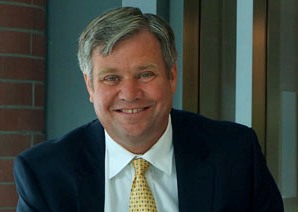
1. What will change now that Bob Grady has stepped down as chairman of the New Jersey State Investment Council, and what do you want to focus on going into the New Year?
I don’t expect any radical departures in how the council’s been run in the past in either our investment policy or our asset allocation decisions. We have a pretty good consensus, the members of the council have a good working relationship with each other.
One of the things that I want to make sure that we’re focused on is risk controls and always protecting the downside as best we can. We can’t control markets, obviously, but I just want to make sure that we understand where we’re positioned at all times and that we’re prepared to react in case there is any major change in global fundamentals.
And just making sure that we have a good pipeline and that we’re seeing all relevant opportunities come in.
A final thing is, I want to make sure our purchasing power is properly utilized. Which is to say, our staff … has been quite good at negotiating favorable fee arrangements. And I want to keep digging in there to make sure the beneficiaries are getting the best deal that they can get.
2. How can staff negotiate the best possible outcome on fees while still obtaining access to the most competitive and top-performing PE funds?
I don’t think there’s any general rule there. There are plenty of places and plenty of investments where you get what you pay for. But, what we have to be wary of is investments with investment managers that are benefitting from a rising tide, if you will, and aren’t delivering value for the management fees incurred.
In any product, whether its private equity or jewelry, you, generally speaking, get what you pay for, but you can also get taken in either market, right? You can buy the same pearl necklace for $10,000 or $5,000 depending on who you buy it from.
3. So, does that imply that you’re looking at PE firms that are off the beaten track or off the radar?
Not necessarily, because we adopted a standard that a manager has to be in the top quartile of his peers in whatever particular investment discipline that they’re in, and I think that is a valuable parameter to maintain, both in terms of ensuring quality and also in terms of keeping any political considerations or anything other than pure investment merit out of the process.
What I am saying is that someone could be top quartile and we could still say, ‘thank you very much but no thank you’ in any given situation. I don’t want to be too hawkish, in that we are realists, and we know that for quality investments you have to pay top-flight managers reasonable fees.
In those cases, my job is to educate the beneficiaries as to why we’re doing that and make sure that we’re keeping lines of communication open. I spent part of yesterday doing exactly that, with the head of one of our big unions.
4. You mentioned not taking political considerations into account. There have been a lot of questions about Governor Chris Christie’s wife, Mary Pat, and her employment by Angelo Gordon, a firm that NJ SIC pays fees to manage money. How do you respond to those who feel that the investment violates pay-to-play regulations?
In that particular case, the investment was made during [Governor Jon] Corzine’s administration and, as soon as there was this change in circumstances, we moved to liquidate the investment as quickly as possible.
In the case of many private partnerships, not all of the assets are liquid, and not all can be disposed of as quickly as one might like.
I’ve been told that we’re moving with all due dispatch and I’m not going to second guess the staff on that. I’ll ask the appropriate questions, but once I’m told they’re doing that I take that at face value.
5. What are your big predictions for New Jersey or the State Investment Council in 2015?
The reality of the math of this pension fund is that we have net outflows of somewhere between $5 billion and $10 billion per year, depending on the contribution into the fund.
We’ve been a combination of skilled and lucky over the last few years in generating double-digit returns that have kept the fund actually gaining ground. I hope that we continue doing that.
Part of the reason we do so much in alternative investments is that markets there can be inefficient and that makes it easier to find situations that are more favorable than the public markets might be to our beneficiaries. In terms of predictions, all I can say is, we have a good staff, they work hard, we’ll continue to look for the best opportunities. We have some very smart people on the investment council and we’ll stay focused on asset allocation.
We just hope to keep delivering returns with an appropriate level of risk going forward. And as for specific market predictions, I don’t make them. –By Sam Sutton


 If you do not receive this within five minutes, please try and sign in again. If the problem persists, please
email:
If you do not receive this within five minutes, please try and sign in again. If the problem persists, please
email: